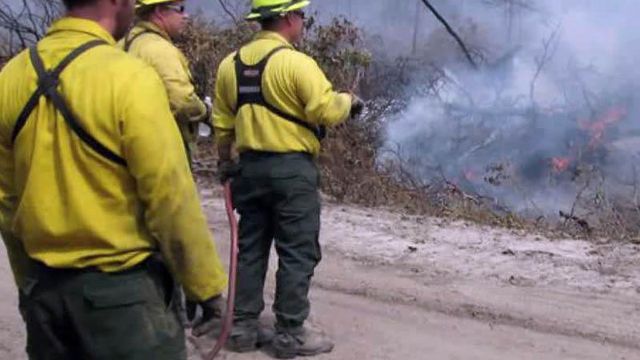NC wildfires burn through budget
Wildfires have already charred more than 100,000 acres in North Carolina this year, burning though the money the state sets aside to battle such blazes.
Posted — UpdatedWildfires sparked by lightning strikes have, since early May, burned more than 50,000 acres in the Alligator River National Wildlife Refuge in Dare and Hyde counties, more than 31,000 acres in the Holly Shelter Game Land area of Pender County and more than 5,200 acres in Bladen County.
In an average year, wildfires consume about 24,000 acres statewide.
About $20 million has been spent this year to put down wildfires across North Carolina, the state Emergency Response Commission said Friday.
"When you start getting these large fires, you have to send so many resources to it (that) you don't have resources to backfill. Then, it's hard to catch up," said Wib Owen, director of the North Carolina Forest Service.
The Forest Service's budget has been cut by about 40 percent since 2007, Owen said, leading to dozens of layoffs and the sale last year of the agency's only firefighting aircraft, which was in need of expensive repairs.
North Carolina has had to borrow aircraft from other states, including Minnesota, to fight fires this year.
"To have that (airborne) resource for initial attack, it would have made a difference, no doubt about it," Owen said.
Sen. Richard Stevens, R-Wake, who helped craft this year's state budget, said lawmakers will look at the budget for wildfire containment.
"It's a careful balance between what can you afford and what should you provide to protect the public," Stevens said. "We don't know yet (if more wildfires is a trend). If it's the same as next year, that says something."
Forestry officials said they are concerned that larger fires could become the norm. They view the agency as an insurance policy for the state.
"It could have been a wet year and we wouldn't have seen these things, but if we don't have the resources when we need them, it's going to cost us," Owen said.
• Credits
Copyright 2024 by Capitol Broadcasting Company. All rights reserved. This material may not be published, broadcast, rewritten or redistributed.






